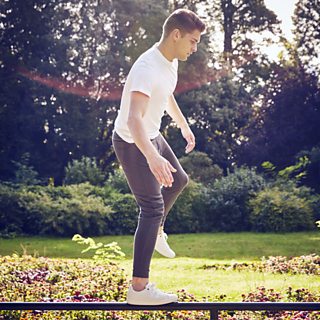About 1 in 3 adults over the age of 30 experience nocturia. The rate of people affected increases with age. It can be caused by a lifestyle habit or an underlying health problem. Nocturia can be caused by:
- Polyuria: when your body makes too much urine in a 24-hour period
- Nocturnal polyuria: when your body makes too much urine during the night
- Bladder storage problems: when your bladder doesn't store or release urine well
- Mixed nocturia: when more than one of these problems are happening
It helps to talk with your health care provider to learn why you make multiple trips to the bathroom at night. You may learn that your nocturia is fairly easy to treat, or you may find it's from something more serious.
https://www.urologyhealth.org/urology-a-z/n/nocturia
How Does the Urinary Tract Normally Work?
See More See Less
The "urinary tract" includes the organs in your body that make, store and remove urine. Urine is liquid waste from your body. Urine forms when the kidneys clean your blood. Normally, the kidneys make about 1½ to 2 quarts of urine each day in an adult; less in children. Urine travels from the kidneys to the bladder through the ureters (the tubes that join them). The bladder holds urine until you are ready to empty it.
The brain and the bladder work together to control urinary function. The muscles in the lower part of the pelvis hold the bladder in place. The muscular neck (end) of the bladder stays closed to store urine. The urethra is a tube that carries urine from the bladder, out of the body. It is kept closed with sphincter muscles.
Parts of the bladder control system
Once you are ready to urinate, the brain sends a signal to the bladder. Then the bladder muscles contract. This pushes urine out of the bladder and through the urethra. The sphincter muscles then open and urine is released out of the body.
If you have to get up two or more times each night to go to the bathroom, it’s not normal. This is a clear sign of nocturia. We should be able to sleep for 6 to 8 hours during the night without needing to use the bathroom.
Waking to go to the bathroom obviously affects your quality of sleep, and your quality of life. Most people don’t function well without solid sleep. It makes us grumpy and less productive during the day. Over time, poor sleep can become a severe problem for many of us.
It’s important to remember that nocturia is a sign of something going on in our bodies. It is not a disease in and of itself.
Nocturia can be from a simple habit like drinking too much fluid (especially caffeine or alcohol) before bed. Or it could be from certain medication, illnesses or reduced bladder capacity.
The following lifestyle habits are known to cause nocturia in either men or women:
- Drinking too much fluid before bedtime (especially caffeine or alcohol)
- Behavioral patterns (you've trained your body to wake up during the night to use the bathroom, even if you don't necessarily have to go)
- The timing or dose of medicines, such as: diuretic medicine (water pills), cardiac glycosides, demeclocycline, lithium, methoxyflurane, phenytoin, propoxyphene, and excessive vitamin D
- Sleep disorders, like insomnia or sleep apnea
Underlying health conditions can cause nocturia. For example:
- Diabetes
- High blood pressure
- Heart disease,
- vascular disease or congestive heart failure Bladder obstruction ((stones)), inflammation or other problems that affect bladder capacity (like bladder surgery or fibrosis from radiation)
- Overactive bladder symptoms
- Prostate obstruction
- Vaginal prolapse
- Menopause Childbirth Pelvic prolapse
- Enlarged prostate (prostatic hyperplasia (BPH)
- Restless leg syndrome
- Edema in the lower limbs, or leg swelling
- Interstitial cystitis
- Reduced bladder capacity
- Nocturnal polyuria (when your body produces too much urine at night for your bladder to hold)
Often, several of these issues may be going on at once.
You and your health care provider will want to learn the cause of your nocturia. You'll be asked about your symptoms and health history. Your health care provider may also ask you to keep a bladder diary in order to help with a diagnosis. This diary is used to keep track of things like the kind and amount of liquids you drink, trips to bathroom, etc. to track trends over a period of time which can lead to useful treatments.
Some questions your doctor may ask:
- When did your symptoms first start?
- How many times do you need to go to the bathroom each night?
- Is there a large or small amount of urine when you go?
- Has the amount of urine you make changed (increased or decreased)?
- How much caffeine or alcohol do you drink each day? When?
- Do you feel like you're getting enough sleep?
- Has your diet changed recently?
- Do you wake up wet? (Are you leaking?)
If your health care provider needs more information, you may have a:
- Urine cultureandurinalysis check for infection, unwanted blood, and other elements in your urine.
- Blood test: checks the kidney and thyroid, cholesterol levels and the presence of anemia, diabetes or other problems.
- Bladder scan shows how much urine is still in the bladder after you go to the bathroom.
- Cystoscopy: checks for a tumor or other causes of your symptoms by having the doctor insert a narrow tube with a tiny lens inside the bladder.
- Urodynamic testing: checks to see how well your lower urinary tract stores and releases urine.
Lifestyle changes
- Restrict fluid intake at night.
- Drink plenty of fluids during the day (especially water), but limit fluids 2-4 hours before you go to sleep. Be sure to limit alcohol and caffeine (soda, tea and coffee).
- Manage your use of diuretics.
- If you have to take a diuretic, then do so at least 6 hours before you go to sleep. This will help reduce the number of times you urinate during the night. Elevate your legs or use compression socks.
- Some people experience fluid build-up in their legs. When you elevate your legs, it helps to redistribute fluids back into the bloodstream, reducing the need to urinate. Elastic compression stockings help by putting pressure on your legs to prevent fluid build-up.
- Enjoy afternoon naps.
- When you sleep poorly, a nap can be help you feel better during the day. Naps can also allow liquids to be absorbed into the bloodstream. However, be careful not to nap too long or too often. You don't want to disrupt nighttime sleep patterns with naps.
Management
If you experience bed-wetting, there are several products to help keep you and your bed dry. For example, waterproof mattress covers, absorbent briefs and skincare products.
Visit our incontinence website article to learn more about managing leaks with products and devices.
Medicine
If lifestyle changes alone don't help with your nocturia, some medicines may. Some people try one type, then another, until they find what works best for them. Not everyone benefits from prescription drug options, but it helps to know about them.
- Medicines to help the kidneys produce less urine. For example, Desmopressin (DDAVP®).
- Anticholinergic medicines to treat bladder muscle problems. They relax the bladder if it spasms. These are used to correct overactive bladder. For example, Darifenacin (Enablex®), Oxybutynin (Ditropan®), Tolterodine (Detrol®), Trospium Chloride (Sanctura®), or Solifenacin (VESIcare®).
- Diuretic medicines to regulate urine production and high blood pressure. For example, Bumetanide (Bumex®), Furosemide (Lasix®).
If an underlying illness leads to nocturia, then treating that illness will surely help. It's important to treat diabetes, high blood pressure, congestive heart failure, obstructive sleep apnea, and/or enlarged prostate (BPH). Changing the timing and dose of prescribed medicine may also help.
With long-term lifestyle changes and caring for other health problems, your symptoms should improve. You should be able to sleep well again.
Pay attention to the things that help you sleep through the night. Keep up with these changes to prevent nocturia in the future. Keep in touch with your health care provider to let him/her know if you don't improve over time.
- Do I need to see a specialist?
- If I need a specialist, can you give me a referral?
- Will I need to have tests to find the cause of my nocturia?
- What other problem could be causing my symptoms, and why?
- What treatments do you think are right for me and why?
- What are the pros and cons of each type of treatment?
- After I start treatment, are there problems I should I watch for?
- How soon after treatment will I feel better?
- When should I call you?
-
Will I need treatment for the rest of my life?
https://youtu.be/zoLlKwhTXxQ
Forwarded messages from friends:
Nocturia (Night time urination). Drinking water at night and how it helps.
Noctoria and heart problems are related. It is worth spending two minutes to read the information below.
An American doctor tells us that Nocturia, heart problem and cerebral infarction are related.
The most common symptom of middle-aged and elderly people is nocturia (waking up at night to urinate). Because of nocturnal urine, the elderly are afraid of drinking water before bedtime. They don't know that not drinking water before going to bed, getting up in the middle of the night to pee without drinking water is an important cause of early morning cerebral infarction in middle-aged and elderly people. In fact, nocturia is not a problem of bladder dysfunction. Nocturia is caused by the aging failure of the heart function in the elderly, and the inability of the right heart atrium to suck blood from the lower body.
During the day, we are all in a standing position, The blood will flow down. If the heart is not good, the blood volume of the heart is insufficient, the pressure on the lower body will increase, so middle-aged and elderly people will have lower body edema during the day. When they lie down at night, the pressure on the lower body will be relieved and a lot of water accumulate in the tissues. The water returns to the blood. If there is too much water, the kidneys will work hard to separate out the water and drain it to the bladder, causing nocturia.
Therefore, it usually takes about three or four hours after lying down to sleep to get up and go to the toilet for the first time. After that, the water in the blood continues to increase. So after another 3 hours, they will have to go to the toilet again.
Why is this an important cause of cerebral infarction and myocardial infarction? Because after two or three urinations, the water in the blood is greatly reduced. The body also continue to lose water through breathing. The blood then begins to become thick and sticky, and the heart rate slows down due to the low metabolism of the body during sleep. With thick blood and slow blood flow, the stenosis of the blood vessel is easily blocked... This is why the middle-aged and elderly people almost always have myocardial infarction or cerebral infarction at 5 or 6 in the morning. This situation will lead to death while asleep.
The first thing to tell everyone is that nocturia is not a malfunction of the bladder, but a problem of aging heart. The second thing to tell everyone is that you must drink some warm water before going to bed, and you must drink some warm water after you wake up in the middle of the night to pee. Don't be afraid of nocturia, because not drinking water may take your life.
The third thing is that you must exercise more in normal times to strengthen the function of the heart.
The human body is not a machine. A machine will wear out when used frequently, but the human body will be the opposite. It will become stronger when used frequently.
Do not eat unhealthy food, especially high starch and fried foods.
If you like this article, kindly forward it to your friends.
Related posts:
Peeing Problems ?













